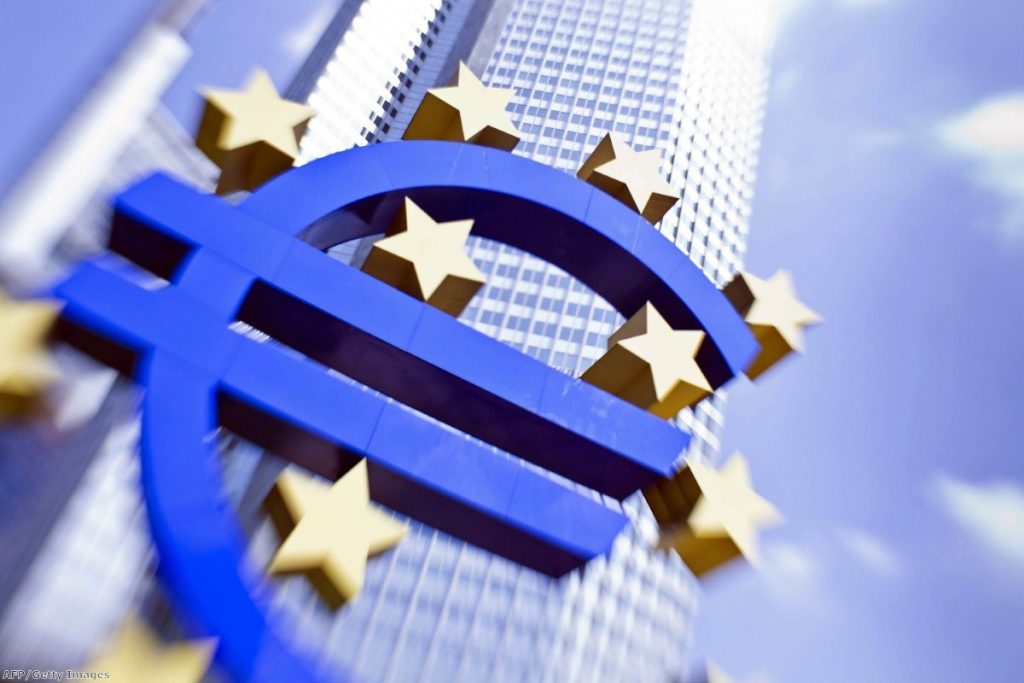Eurozone banking union leaps forward with Brussels deal
Britain looks to have won a key concession as European leaders agree new banking union rules in Brussels today.
Late-night talks finally ended in Germany dropping its objections to plans for the European Central Bank to become the chief supervisor of European banks, in a development being viewed as a breakthrough in the struggle to contain the ongoing eurozone crisis.
"The importance of the deal cannot be stressed too highly," German chancellor Angela Merkel was quoted as saying by the Reuters news agency. One finance minister described the deal as "a Christmas present to the whole of Europe".
Fears that Britain's own financial sector could be left on the fringes of Europe by a deeper integration of the eurozone are undercutting jubilation in Britain, however.


Earlier this week UK peers warned that the City of London's superiority in financial services could be coming under threat.
"The consequences for this country could be momentous," the Lords' European Union committee's report stated.
"There is a significant risk that the UK will be marginalised as banking union participants move towards closer integration."
Last night's concession means non-eurozone member states will be able to have a say, however. It has now been agreed that when the European Banking Authority votes on banking union matters a double vote will take place: one for eurozone countries and a separate vote, requiring a simple majority for approval, among the EU's ten other member states.
David Cameron and George Osborne have been broadly in favour of deepened integration within the eurozone, making the creation of a two-tier Europe – feared by some in London – an important part of UK policy.
Now attention is focusing on the two-day European Council summit in Brussels, where leaders will consider proposals by EU president Herman Van Rompuy to achieve "a genuine economic and monetary union".
"The euro area is confronted with a rapidly evolving international environment characterised by the rise of large emerging economies," Rompuy states in the preamble to his report.
"A more resilient and integrated economic monetary union would buffer euro area countries against external economic shocks, preserve the European model of social cohesion and maintain Europe’s influence at the global level."
Eurosceptics in Britain remain deeply suspicious of Van Rompuy's motives, however, and fear the implications of such changes for the single market and national parliaments could be significant.
The Commons' European scrutiny committee's chair, arch Tory eurosceptic Bill Cash, said: "The prime minister needs to be aware, as he discusses these matters in the European Council, that the debate has moved on from specific concerns about individual issues to fundamental questions which involve our democracy."
Cash pressed David Cameron on moves towards federalisation of the EU in the Commons yesterday.
The prime minister rejected European Commission president Jose Manuel Barroso's claim that only the European parliament provides democratic legitimacy for the EU, telling MPs: "It is the national parliaments that provide the real democratic legitimacy within the European Union.
"When we are discussing banking union, it is to this House that we should account. When we are discussing the European budget, it is to this House, which represents our taxpayers, that we should account."
The Lords report, whilst acknowledging that the UK will not join a European banking union, agrees that for the rest of the EU closer banking ties are necessary to achieve stability in the eurozone.
Last night's agreement will see the ECB given powers to supervise the larger banks in the eurozone and intervene directly in smaller banks.
The second part of the agreement involves a common resolution scheme whereby when any eurozone bank gets into trouble the scheme will decide whether to bail out the bank or let it go bust, with all eurozone governments jointly bearing the cost of the bailout.
The third part of the agreement is the establishing of a common deposit guarantee – a European version of Britain's financial services compensation scheme. Individual savers have their investment guaranteed up to a certain level in the case of a run on an individual bank. The limit is expected to be 100,000 euros.









